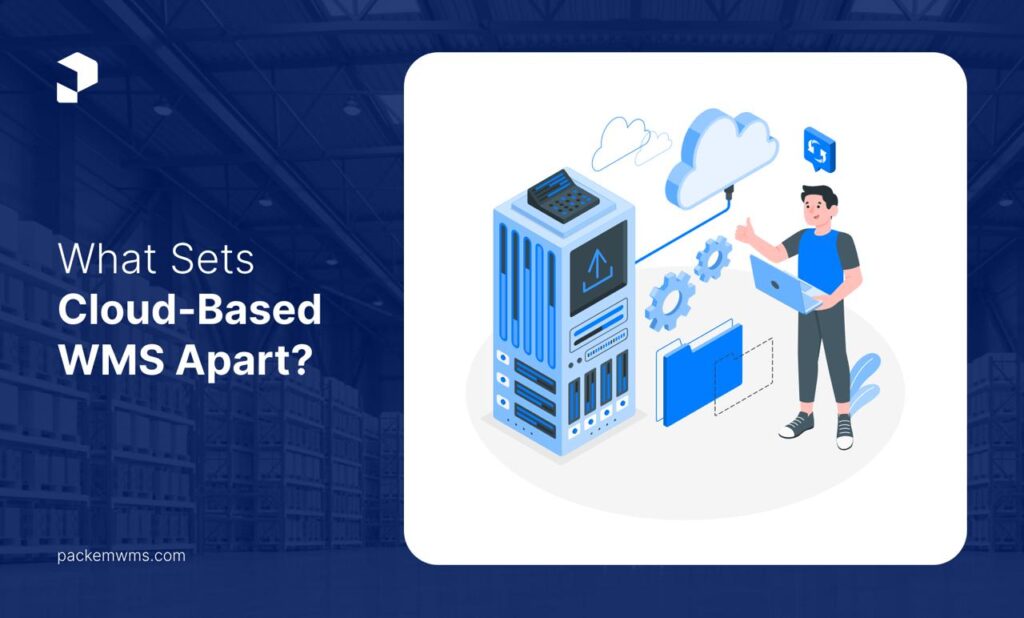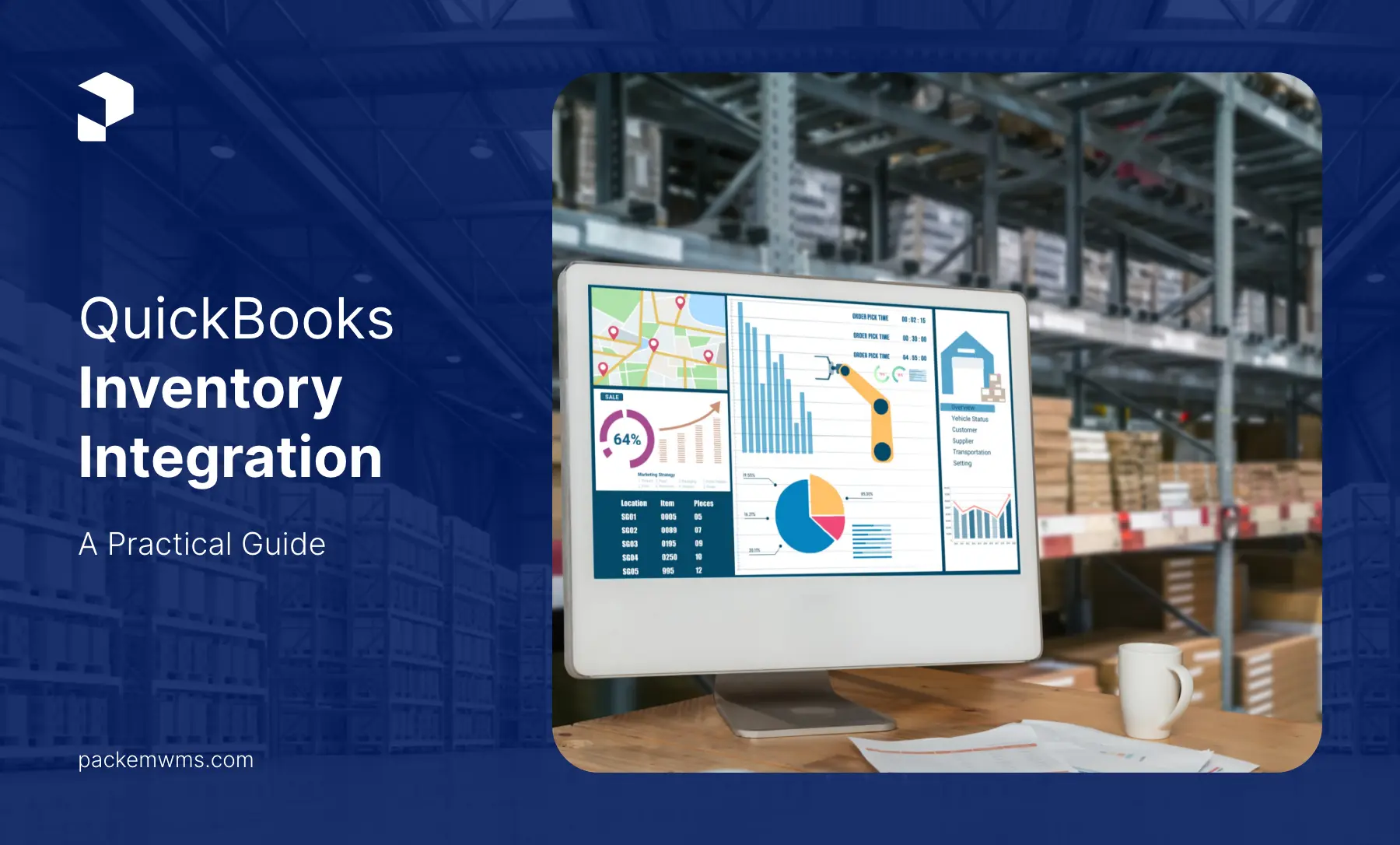It makes sense why businesses are shifting from traditional on-premise setups—those require significant investment in physical hardware that they have to maintain themselves.
Plus, cloud systems adapt quickly: add users easily during busy periods; access your data anytime, anywhere you’ve got the internet; all in real time and across various devices—a must for modern operations!
Real-time Inventory Updates
In our fast-paced world where time is money, real-time inventory updates are a game-changer for businesses. Picture this: every item in your warehouse gets tracked down to the minute it moves. This isn’t some far-off dream; with cloud-based Warehouse Management Systems (WMS) like PackemWMS, you get exactly that – stock data updated by the second.
Imagine having eyes on each piece of merchandise at all times – no more guesswork or nasty surprises about running low on key products.
When items sell online or offline, everything syncs up perfectly across all sales points thanks to technologies such as Marketplaces and Ecommerce Platforms Integration from Easy WMS. For companies large and small—handling gadgets or groceries—it’s crucial not only knowing what’s there but also precisely where ‘there’ is within vast storage spaces.
Cloud systems offer clear visibility so whether you’re picking goods for shipment or restocking returns, efficiency reigns supreme using optimal routes carved out by smart software guiding workers swiftly through tasks.
Linking various supply chain elements together seamlessly means less downtime and fuss over mismatched figures between platforms—a true boon when managing multiple facilities’ inventories simultaneously without error-prone manual inputs bogging down progress.
Say goodbye to chaotic warehouses and hello smooth operations while staying learner on resources invested upfront—all made possible with modern solutions like cloud-based management tools designed specifically for powerhouse performance in today’s bustling market scene.
Dealing with single-unit orders or bulk transports, integrated WMS modules streamline workflows. This innovation replaces archaic methods, transforming logistics globally.
Experience the simplest inventory management software.
Are you ready to transform how your business does inventory?
Seamless Integration Capabilities
In my two decades of SEO and marketing, I’ve seen what sets a cloud-based WMS like SkuNexus apart. Here’s the deal: they flawlessly link with your existing tech stack. That means when someone buys from you online, everything updates without anyone lifting a finger.
Orders flow in; stock numbers drop accordingly, shipping details go straight to dispatch – slick efficiency! Companies who get this integration right often cut out 30% of wasted time because staff aren’t stuck entering data by hand anymore.
It’s clear – picking an integratable system should be at the top of your list if you’re aiming for smooth operations in this digital-first world.
Scalability and Flexibility Benefits
When we talk about scalability in cloud-based WMS, think PackemWMS; it’s a game-changer. Picture your business growing, you’re selling more and need to move quickly — this system adapts without a hiccup. It happens fast, no waiting around for tech guys with cables and codes.
Then there’s flexibility. Times like Black Friday hit hard; the rush is on! But with Shipedge from our arsenal, I’m not sweating it.
Adjustments are easy as pie—no sweat over peak periods or sudden market flips. We stay ahead of the curve so that every order ships out right on time. That power at my fingertips means customers smile too—they see their stuff moving real-time which matters when they’re choosing where to buy next season’s goods.
All these perks come sans bulky hardware updates or patches slowing us down either—it’s all smooth sailing up here in the clouds.

Enhanced Data Security Features
I’ve seen how enhanced data security transforms warehouse management. PackemWMS elevates this with robust protection layers.
Real-time inventory oversight is critical; it ensures your stock levels are updated without glitches that might expose sensitive info to breaches due to old tech issues.
Cloud WMS like PackemWMS empowers businesses by managing updates and defense against cyber threats on their behalf.
You get a system resilient to vulnerabilities, leaving you stress-free about tech upkeep or sneaky hackers—a must-have for any business juggling multiple warehouses seeking secure efficiency leaps!
Advanced Analytics and Reporting Tools
I’ve seen cloud-based WMS like PackemWMS transform how warehouses function. They’re not just about storage now; they guide your whole operation with sharp data insights and advanced reporting tools that make a real difference.
Think of it: every piece of inventory tracked, each worker’s task optimized for time – you get the full picture to drive smarter decisions.
With these systems, we can watch our metrics closely – know fast how inventory moves or where workers excel. This isn’t guesswork; it’s precision management powered by tech advancements breaking old supply chain limits wide open. We adapt quicker than ever because our tool does more than just manage – it informs us deeply.
Efficient Barcode Tracking Systems
Efficient Barcode Tracking Systems amp up our PackemWMS game. You scan; system records—it’s that simple but oh so powerful. No more writing down numbers or guessing which box goes where.
Mistakes drop, speed climbs, and hey—customers smile big when orders fly out the door fast. What do we love? Barcodes make it a breeze to see every item’s story in real-time as they move from shelf to shipment—no delays, no confusion.
Durable scanners handle tough warehouse life too! We check compatibility with your ERP because nobody likes a square peg for a round hole situation. Takeaway: Smart barcode tracking equals leaner operations on all fronts!
Experience the simplest inventory management software.
Are you ready to transform how your business does inventory?
Cost-effective Cloud Solutions
In the cloud WMS game, cost-saving is key. With PackemWMS, companies don’t stress over big upfront costs for hardware or worry about upkeep bills that hurt your pocket later. We talk a lean system here; it grows smooth as you do – just switch up your plan on demand and boom, more power without sweat.
You tap into the warehouse’s heart from anywhere with Wi-Fi—no need to be stuck in an office. See how much stuff you got? Do this fast without hassle!
It’s smart money work too—spend less time managing people because some of those jobs are now automated by our tech. This way we cut down waste every day – get only what works best for you at any size. That’s how PackemWMS rolls out prime cloud solutions: effortless scaling plus tight control over cash flow make sure businesses stay agile and bang-on budget.
Cloud-based WMS solutions offer a seamless approach to inventory management. They’re accessible from anywhere with internet, providing real-time data and insights. Unlike traditional systems, they need less upfront investment which saves you money.
Also, upgrades are automatic; no manual updates required! It means your system stays current without extra effort or costs on your end. Plus, these platforms scale easily with business growth – so as PackemWMS expands, the warehouse management keeps pace effortlessly.




